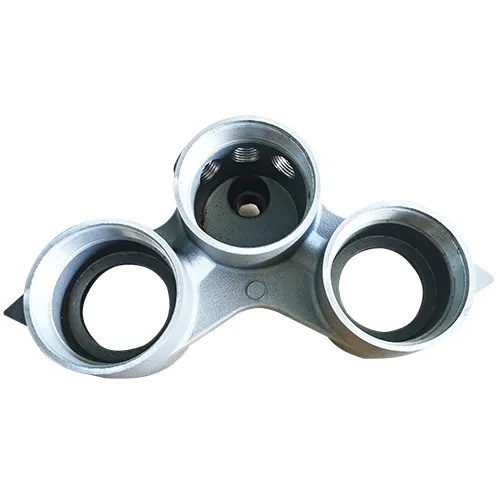Mobile:+86-311-808-126-83
Email:info@ydcastings.com
Exploring the Benefits and Applications of Cast Iron Connectors in Industrial Settings
The Importance and Applications of Cast Iron Connectors
Cast iron connectors play a crucial role in various industries due to their strength, durability, and reliable performance. These components are extensively used in construction, automotive, and heavy machinery sectors, where structural integrity and safety are paramount. This article explores the significance of cast iron connectors, their applications, and the advantages they bring to industrial processes.
What is Cast Iron?
Cast iron is a group of iron-carbon alloys characterized by their excellent castability and durability. By adding carbon, silicon, and other elements, manufacturers create a material that exhibits superior mechanical properties. Cast iron can withstand high temperatures and loads, making it ideal for components that must endure harsh operational conditions.
Characteristics of Cast Iron Connectors
One of the primary attributes of cast iron connectors is their high tensile strength. This property enables them to support heavy loads, making them a preferred choice in structural applications. Furthermore, cast iron is known for its excellent wear resistance, which contributes to a longer lifecycle of the connectors, reducing the frequency of replacements and maintenance costs.
Another advantage of cast iron connectors is their ease of manufacturing. The casting process allows for the creation of intricate shapes and designs, offering versatility in various applications. This adaptability makes cast iron connectors suitable for both standard and custom requirements.
Applications of Cast Iron Connectors
1. Construction and Infrastructure In the construction industry, cast iron connectors are essential in joining structural elements like beams, columns, and frameworks. They provide the necessary support for buildings, bridges, and other infrastructure projects, ensuring stability and safety during their lifespan.
cast iron connector

2. Automotive Industry Within the automotive sector, cast iron connectors are commonly used in engine components, such as exhaust manifolds and engine brackets. Their high heat resistance and strength are crucial for withstanding the demanding environments typical of motor vehicles.
3. Heavy Machinery In heavy machinery, cast iron connectors facilitate the transmission of power and the synchronization of moving parts. They are vital in equipment like cranes, excavators, and agricultural machines, where reliability and strength are essential for operational efficiency.
4. Piping Systems Cast iron connectors are also prevalent in piping systems, particularly in water and sewage applications. Their corrosion resistance and pressure-handling capabilities make them a staple in managing fluid transport systems effectively.
Advantages of Using Cast Iron Connectors
The use of cast iron connectors translates into various benefits for industries. One of the primary advantages is cost-effectiveness. Due to their durability, cast iron connectors tend to have a lower lifecycle cost, reducing maintenance and replacement needs. Additionally, their capacity to perform under extreme conditions ensures that they provide a dependable solution for critical applications.
Moreover, cast iron connectors contribute to the overall environmental sustainability of projects. Their longevity means that fewer resources are expended in manufacturing replacements, and their recyclability makes them a more eco-friendly option compared to other materials.
Conclusion
In summary, cast iron connectors are indispensable components in various industries, valued for their strength, durability, and versatility. From construction to automotive applications, they facilitate effective joins and provide long-lasting performance. As industries continue to evolve, the demand for reliable and resilient components like cast iron connectors will undoubtedly persist, solidifying their status as a cornerstone of modern engineering. Their ability to enhance structural integrity and reduce maintenance costs makes them an invaluable asset in any industrial application.
-
Why Should You Invest in Superior Pump Castings for Your Equipment?NewsJun.09,2025
-
Unlock Performance Potential with Stainless Impellers and Aluminum End CapsNewsJun.09,2025
-
Revolutionize Your Machinery with Superior Cast Iron and Aluminum ComponentsNewsJun.09,2025
-
Revolutionize Fluid Dynamics with Premium Pump ComponentsNewsJun.09,2025
-
Optimizing Industrial Systems with Essential Valve ComponentsNewsJun.09,2025
-
Elevate Grid Efficiency with High-Precision Power CastingsNewsJun.09,2025











